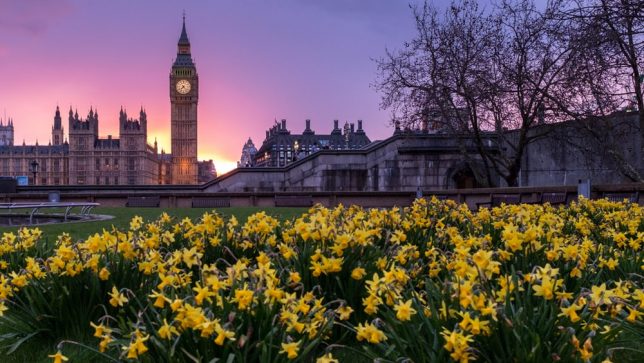On Thursday, the London Assembly called on the Mayor to cease the use of the herbicide on Greater London Authority (GLA) land and the Transport for London (TfL) estate.

Caroline Russell AM, who proposed the original motion said: “The widespread use of glyphosate is causing concern among Londoners. Following a number of high-profile legal cases in the USA, the evidence of exposure to glyphosate’s carcinogenic effects on workers and the public is mounting. People are rightly questioning its continued use across our city.
“I am asking the Mayor to follow the example of the London Borough of Hammersmith and Fulham and cease spraying glyphosate on GLA land and the TfL estate, as well as urging all London boroughs to follow suit.”
Leonie Cooper AM, who proposed the amended motion said: “It is vital that we reduce to zero the spraying of glyphosate, a harmful pesticide, not only for the health of the planet but for Londoners’ health, as there is growing evidence that it is a carcinogen.
The Mayor committed in the Environment Strategy to cutting pesticide use and now we need to see an action plan and timetable for how it will get to zero. Special care must be paid to mechanical alternatives on trackside in particular, to ensure the safety of all passengers.”
The full text of the motion is:
This Assembly notes:
- the growing body of scientific evidence showing a link between glyphosate exposure and an increased risk of cancer;
- the spraying of glyphosate in London is causing concern among residents and elected representatives about its potential harmful effects on children, animals and wildlife on our streets, housing estates and parks;
- the contracting staff who carry out this work need to be protected from harm;
- The Mayor’s commitment in the Environment Strategy to “reduce the use of pesticides and peat-based products, such as compost”;
- the work of Transport for London (TfL) with suppliers and contractors to explore safer alternatives such as hot foam, for essential vegetation management and weed control; the London Borough of Hammersmith and Fulham was the first council in London to cease the use of glyphosate, to support biodiversity and protect habitat against any long-term chemical effect;
- other London Boroughs such as Hackney and Croydon are trialling non-chemical weed removal and exploring alternatives; and
- in June 2019 the German state-owned rail operator Deutsche Bahn announced it would stop using glyphosate on its tracks and is looking for substitutes to replace the widely used glyphosate herbicide.
In light of the public and occupational health concerns about glyphosate exposure and the need to protect habitat and biodiversity the London Assembly called on the Mayor of London to:
- Bring forward an action plan and timetable for a major reduction, to zero over time, in the spraying of glyphosate on GLA land and the TfL estate, prioritising ensuring that tracksides are cleared using mechanical rather than chemical methods to guarantee safety and
- call on London boroughs to cease the spraying of glyphosate in all council operations as soon as possible.
To manage this process, the London Assembly asked the Mayor of London to support a London Councils working group for London borough representatives, specialists and other key land managers in London to work towards the removal of this and any other harmful herbicides.
Where there are problems with invasive species such as Japanese Knotweed and where there is a duty to eradicate, then the Assemby stated that glyphosate may be used until an acceptable non-chemical alternative becomes available. But its use should be limited to stem injection rather than spraying.



















if moinsanto had any evidence roundup was harmless they neglected to bring it to the first three trials i have read the trial transcripts thank you london
Delighted that London is going to ban glyphosate.
I want our local council to do the same thing.
So what are London going to do instead?
Leo